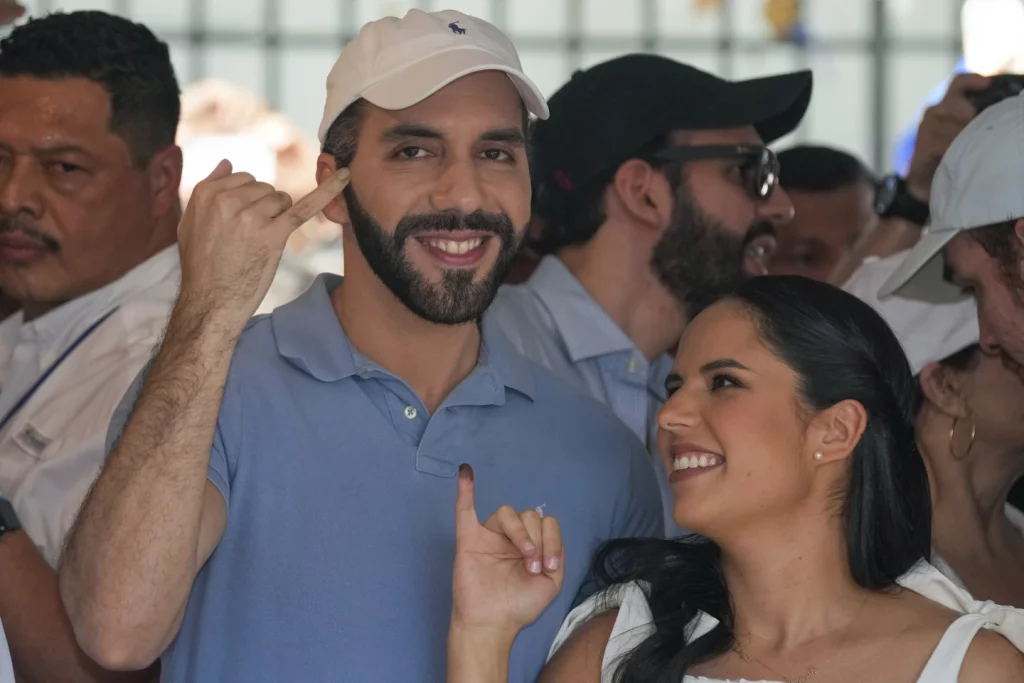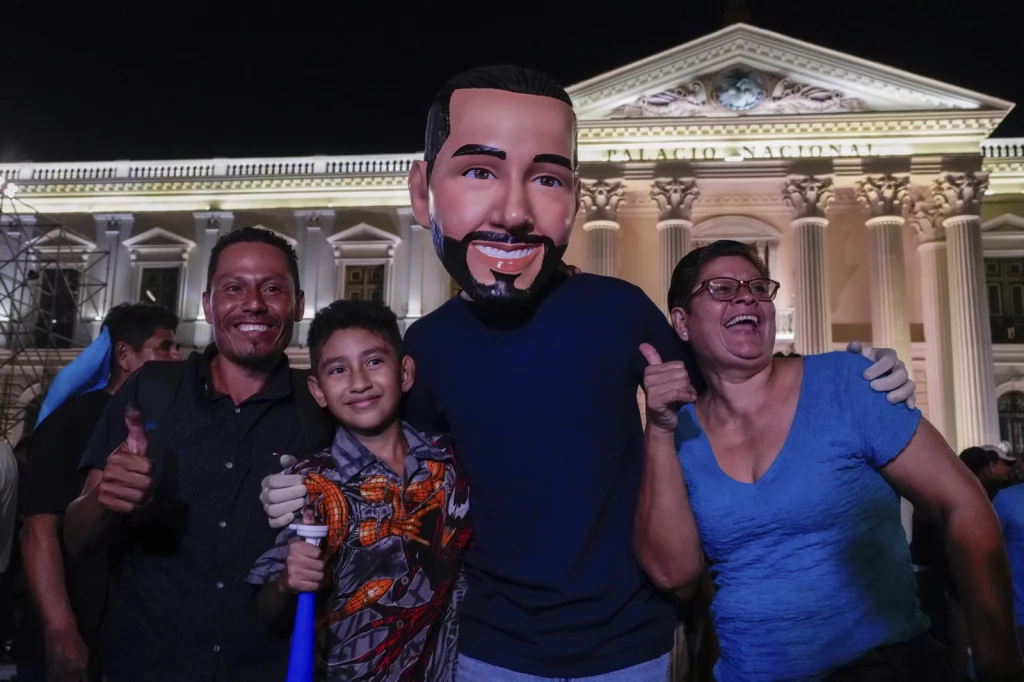
SAN SALVADOR, El Salvador (AP) — Voters in El Salvador appeared to give Nayib Bukele a second term as president, putting him well on his way to a landslide victory in an election that for many hinged on the tradeoff of curtailed civil liberties for security in a country once terrorized by gangs.
The Supreme Electoral Tribunal said late Sunday that with ballots from 31% of polling places tallied, Bukele had 83% of the vote, far ahead of his nearest competitor’s 7% for the leftist Farabundo Martí National Liberation Front. The electoral site updating the count crashed shortly before midnight.

After casting his vote, Bukele made clear that he expects the newly elected Legislative Assembly to continue extending the special powers he has enjoyed since March 2022 to combat the gangs.
Later, standing on the balcony of the National Palace, he said that the country had made history.
“Why are there so many eyes on a small (Latin) American country?” he asked thousands of supporters. “They’re afraid of the power of example.”
“Salvadorans have given the example to the entire world that any problem can be solved if there is the will to do it,” he said.
The self-described “world’s coolest dictator” appeared to sweep to victory after enjoying soaring approval ratings and virtually no competition. That came despite concerns that Bukele’s government has slowly chipped away at checks and balances in his first term and accusations that he dodged a constitutional ban on reelection.
After voting, he jousted with reporters, asserting that the election’s results would serve as a “referendum” on what his administration has done.
“We are not substituting democracy, because El Salvador never had democracy,” he said. “This is the first time in history that El Salvador has democracy. And I’m not saying it, the people say it.”